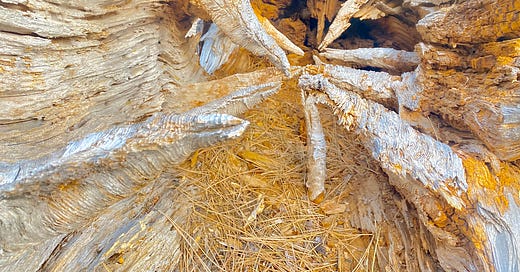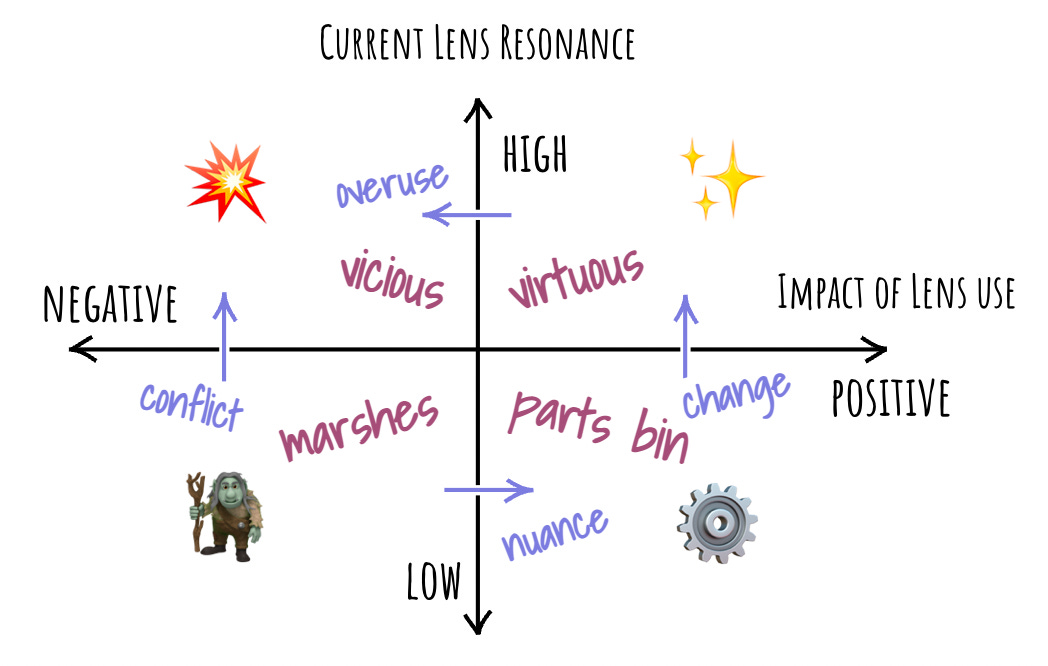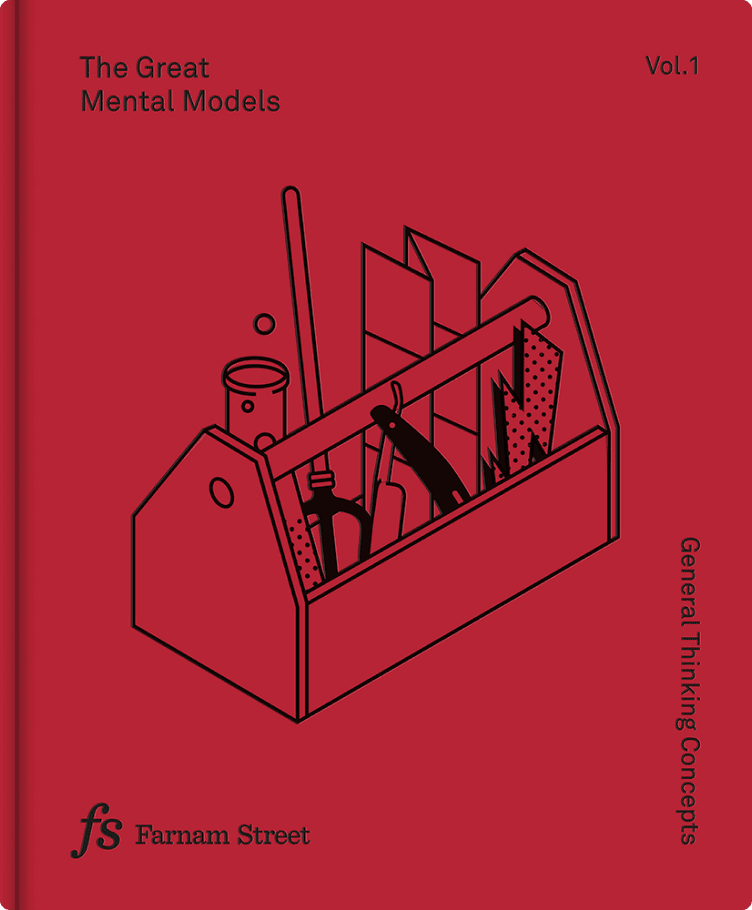Episode 52 — May 19th, 2022 — Available at read.fluxcollective.org/p/52
Contributors to this issue: Julka Almquist, Scott Schaffter, Neel Mehta, Erika Rice Scherpelz, Dimitri Glazkov, Justin Quimby, Boris Smus
Additional insights from: Ade Oshineye, Gordon Brander, a.r. Routh, Stefano Mazzocchi, Ben Mathes, Alex Komoroske, Robinson Eaton, Spencer Pitman
We’re a ragtag band of systems thinkers who have been dedicating our early mornings to finding new lenses to help you make sense of the complex world we live in. This newsletter is a collection of patterns we’ve noticed in recent weeks.
“I wish, my dear Kepler, that we could have a good laugh together at the extraordinary stupidity of the mob. What do you think of the foremost philosophers of this University? In spite of my oft-repeated efforts and invitations, they have refused, with the obstinacy of a glutted adder, to look at the planets or the Moon or my glass [telescope].”
— Galileo Galilei, Opere ed Nas. X, 423
🧼👓 Lens hygiene
Each issue of this newsletter features a lens: a different way of looking at the world around us. Lenses offer their particular perspectives, and in doing so, they increase the sharpness of one aspect while blurring or otherwise distorting others. In the midst of complexity, a well-chosen lens can bring helpful clarity.
Even when we’re not conscious of it, we tend to rely on lenses a lot. Pattern-matching minds inevitably generate lenses. We want to find similarities across disparate experiences and end up creating lenses for ourselves. For example, saying that it’s a “dog-eat-dog world” holds and applies a lens. The catchy shorthand declares that everyone is out for themselves. Similarly, when we say “it’s all going to be okay,” we hold up an optimistic lens that curves the arc of our adventures upward.
Knowing common lenses becomes rather important, especially in organizations that grow beyond Dunbar’s number (also a lens!). Some lenses form a vicious cycle, harming the organization’s culture; others propel it forward, creating a virtuous cycle. Some lenses are active, influencing the present moment; some are dormant, waiting for their moment of resonance. These distinctions form a two-dimensional space. Lenses move through this space in their own ways.
In the top-right quadrant are lenses that currently produce positive outcomes. For example, discovering the lens of Tuckman’s stages of group development might help a team work through the disagreements of the “storming” stage. In the top-left, lenses resonate but for all the wrong reasons: their impact is negative, like in the “dog-eat-dog” example. It is not uncommon for an overused virtuous lens to sneak across the border and become the bane of the team’s existence. For instance, imagine a team leans into the “you can’t improve what you don’t measure” lens too much and accidentally destroys its own culture by reducing everything to overly-simplistic metrics.
Continuing counterclockwise, the bottom-left quadrant is the marshes of counterproductive, slumbering lenses. These lurk in the background, waiting for conflicts to arise, and then suddenly emerge in all their ugliness into the collective psyche. Many of these are schoolyard laws of power, such as “might makes right” or “survival of the fittest,” that were useful lenses when we were children. We might think we’d discarded these as we grew up, but in times of conflict or hardship, they’re still hiding in the shadows of our mind.
Sitting in the bottom right, the final quadrant is the parts bin: these are potentially positive but currently unactivated lenses. This repository is a source of resilience. In the face of inevitable change, when a team needs to reorient, they can reach into their deep parts bin to find a new tool that’ll help them navigate that change. Unlike in the KonMari method (another lens), hoarding lenses is perfectly okay — and likely necessary.
Even lenses from the marshes might be rescued: polish them up a bit, add a bit of nuance, and a more productive new lens emerges. We can’t improve what we don’t measure, and we must pay attention to the immeasurable (bonus unlocked, Drucker–McNamara lens combo activated!)
This latent power of lenses is why we so often feature interesting lenses in this newsletter. Our hope is that readers will use them to populate their parts bin and grow to love managing the hygiene of their lens space.
🛣️🚩 Signposts
Clues that point to where our changing world might lead us.
🚏🍽 The Russian military has had to scavenge silicon chips from dishwashers
US technology exports to Russia have fallen nearly 70% since the US stepped up its sanctions, and one area where Russia has been particularly feeling the pain is in semiconductors. As a result, Russian troops have had to get creative. When Ukrainian officials opened up captured Russian tanks, they found that Russian troops had retrofitted them with silicon chips and other parts scavenged from dishwashers, refrigerators, and other commercial machinery.
🚏🎓 Ransomware (plus COVID) forced an Illinois college to close for good
Lincoln College, a historically black college founded in 1865, announced it would shut down permanently in the wake of a paralyzing ransomware attack that “thwarted admissions activities,” “hindered access to all institutional data,” and rendered “all systems required for recruitment, retention, and fundraising efforts… inoperable.” The attack, combined with how COVID-19 led many students to defer enrollment or take leaves of absence, led to “significant enrollment shortfalls” and an untenable financial position for the school.
🚏🍎 Just 8% of Manhattan office workers are back in their offices 5 days a week
A new survey found that only 8% of Manhattan office workers are back in the office 5 days a week, while 28% are still fully remote. What’s more, just 38% of workers are in the office on an average weekday, which falls short of many employers’ earlier estimates that attendance would have exceeded 50% by now. The companies that are still trying to get employees to return are, unsurprisingly, stepping up their perks (with 43% giving free or discounted meals) or adding flexibility (like work-from-home Fridays in summer).
🚏🌊 The ocean’s thermal inertia is falling, which may make weather more unpredictable
Oceanic and climate scientists often measure the temperatures in the top 50 meters of the ocean. This top layer usually exhibits thermal inertia, which keeps the sea surface temperature relatively stable over time. But as global temperatures rise, this inertia is projected to dwindle, and sea-surface temperatures will begin to oscillate more wildly. Marine wildlife will be impacted (though it’s not clear exactly how), and scientists say it’ll get harder to forecast monsoons, extreme weather and precipitation events, and marine heatwaves.
🚏🪐 Food brands now offer astrology-themed deals
As astrology has grown in popularity among the TikTok generation, food and restaurant brands have jumped on the bandwagon. McDonald’s offered a free sandwich with the purchase of fries during a brief period of Mercury retrograde, when the rocky planet appeared to be moving backward (a phenomenon that’s thought to cause disruption in communication). Tex-Mex fast food chain Del Taco is also offering free food during Mercury retrograde, and Dole (of fruit fame) published a recipe guide called “Salads by the Stars,” with one salad recipe for each zodiac sign.
🚏💋 Researchers have found a way to simulate kisses in VR
Researchers working on “mouth haptics” have developed a way to simulate the feeling of being kissed using a small accessory mounted to a VR headset. The ultrasonic transducers on the accessory use sound waves to blast the user’s lips, teeth, and tongue with particles — which could recreate the feeling of not just kisses but also drinking from water fountains, eating food, feeling the wind in your face on a gusty day, or even getting a faceful of cobwebs when walking through a forest.
🚏🏦 Citing FDIC, Ethereum’s founder says UST stablecoin holders should be reimbursed
It wasn’t just the now-infamous cryptocurrency Terra Luna (down 99.999% from its peak) that crashed; its sister currency, the stablecoin UST, also fell from its $1 peg down to as little as 8¢. Vitalik Buterin, the co-founder of Ethereum, wrote in response that the company behind the two projects should fully reimburse “the average UST smallholder” because they were suckered in by that company’s promises of risk-free 20% annual interest rates. As precedent, Buterin cited the US’s FDIC, which supports smaller savers by insuring Americans’ bank accounts for up to $250,000 each.
📖⏳ Worth your time
Some especially insightful pieces we’ve read, watched, and listened to recently.
Turning Cities Into Sponges to Save Lives and Property (The New York Times) — Examines how concrete-filled cities have experienced more flooding as a result of increased rainfall, while also struggling with droughts and depleted groundwater levels. In response, urban planners are turning to sponge-like infrastructure like bioswales, wetlands, and storage ponds, which can absorb runoff during flood periods and release the water during dry spells.
Is an Unknown, Extraordinarily Ancient Civilisation Buried Under Eastern Turkey? (The Spectator) — A tour of Karahan Tepe, an archaeological site in eastern Turkey that’s estimated to be between 11,000 and 13,000 years old (nearly three times older than the Egyptian pyramids). Muses about what we can learn about ancient cultures and cities from this strange site, distinguished by a chamber filled with phallic sculptures.
The Forgotten Stage of Human Progress (The Atlantic) — Derek Thompson argues that we tend to focus on invention and innovation as progress, but we often overlook the essential factors of implementation and deployment.
Solarpunk: A Narrative Strategy, a Memetic Engine (The Stoa) — Explores Solarpunk, an approach to speculative fiction and art that seeks to “answer the question of ‘what does a sustainable civilization look like, and how can we get there?’” The talk is followed by discussion with several advocates of the movement.
The Evolution of Trust (Nicky Case) — This simple yet informative game walks through the essentials of game theory and derives several insights about what we need for trust to evolve in a society. Along the way, we discover the upsides (and downsides) of cheating, the evolution of counter-cheating strategies, and the importance of repeated games.
Fish Can Learn Basic Arithmetic (Science) — Explains a new study where researchers trained a variety of fish to add or subtract small numbers. Fish were shown a math puzzle using colored shapes and presented with two doors; they had to swim through the “correct” one to get a reward. With this process, researchers showed that the fish were able to understand concepts like “add one,” “add two,” “subtract one,” and more with over 80% accuracy.
103 Bits of Advice I Wish I Had Known (Kevin Kelly) — The editor of Wired, who recently turned 70, shares some assorted bits of wisdom and pithy aphorisms on personal growth, raising children, being kind, public speaking, and even not forgetting your items in a hotel room.
🌀🖋 More from FLUXers
Highlighting independent publications from FLUX contributors.
In Outlier Roles in Venture Capital (and Other Organizations), FLUX’s own Samuel Arbesman (whose Substack is aptly titled the “Cabinet of Wonders”) argues that VC firms should create more generalist roles, finding outliers who can think long-term and push the edges of the organization. These roles can enable opportunities for greatness by creating “space for more undirectedness, which involves thinking along longer time horizons and creating room for randomness and optionality. We must have the possibility of following our curiosity and what seems interesting, even when it might be different from the core functions of the organization.”
📚🌲 Book for your shelf
This week, we recommend The Great Mental Models: Volume 1 by Rhiannon Beaubien and Shane Parrish (2018, 190 pages).
The three-volume Great Mental Models series is a useful entry-point to the world of mental models or lenses. Volume 1, dubbed “General Thinking Concepts,” covers nine powerful and general-purpose lenses, such as probabilistic thinking. This book doesn't attempt to go deep into the complexities of each lens, but rather gives you enough knowledge to start to fill up your “parts bin” with these novel ways of viewing the world and approaching problems. It’ll likely encourage you to dive into a dozen other books to explore these concepts with more nuance and depth.
Volumes 2 and 3 in this series from Farnam Street expand your toolkit further by teaching reusable concepts from physics, chemistry, biology, mathematics, and complex systems; examples include cooperation and critical mass.
🕵️♀️📆 Lens of the week
Introducing new ways to see the world and new tools to add to your mental arsenal.
This week’s lens: Expanding a distinction.
Last week, we shared how drawing a distinction can be useful for understanding ambiguous situations. But when a distinction becomes overly ossified, it may be useful to follow in the footsteps of FLUX reader Chris Phoenix and generate more ambiguity. Chris’s model of “expanding a distinction” is a lens for exploding a binary into a multifaceted state space.
We start with two ideas that seem to be diametrically opposed: consider dashboards versus targeted alerts. Next, list contrasting attributes of those things: dashboards are “pull”-based and present data to many people at once, while alerts are “push”-based and targeted at just a handful of people. Then, treat the contrasting attribute pairs as dimensions that define a multi-dimensional space: for instance, push/pull on one axis and broad/narrow on another. Now it’s time for the fun part: mix and match!. What if you push data to a broad audience? This might be a newsletter. What if you let people pull data that’s just for them? That might be a personal data feed.
Like with ideation mash-ups, not every combination of attributes will be meaningful, but expanding a distinction can inspire thinking in previously unexamined directions. When the distinction is a source of conflict, this approach can create potential win-wins that were previously hidden behind the binary. So look around: what other dimensions can you extract? What else can you invent?








